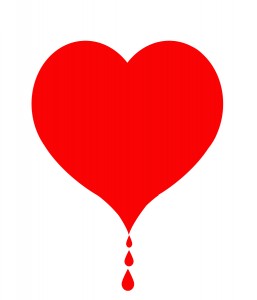Radical Compassion
May 20, 2009
It is not so absurd to say, as another television star once did, that Oprah Winfrey is “one of the most important political figures of our time.” Here is an immensely powerful woman who is in the deadly serious business of remaking America, one heart at a time. Read on for the second part of a four-part essay on the Oprah-ization of America.
A young woman walks into the auto repair shop in Burlington, Vermont with an expression of ecstatic joy. Altogether, she does not appear to be in need of Radical Compassion. She is pretty and nicely-dressed in black heels and a silky top. Her haircut is casually chic. But, looks are deceiving. She is among the deserving many.
Without much ado, Hal Colston, the owner of the garage, hands her the keys to a newly-reconditioned used car. “I’m so excited,” Dylan effuses. “You guys are amazing. I could just hug you.” She does.
Back in the studio, Oprah is misting up. It’s not just Hal Colston and his generosity that makes her teary-eyed, it’s also the couple in Eureka Springs, Arkansas, who runs a free medical clinic twice a month; the woman in Florida who has given away 65,000 bowls of soup; the South Dakota couple who have opened their motel free of charge to the needy; the New Jersey woman who has found sheets for 8,000 beds; the Texas woman who pulls cash out of nowhere to help those facing foreclosure; and the children who have through their own efforts amassed truckloads of socks and stuffed animals.
These are what Oprah calls “Heroes in Hard Times,” the people who don’t simply waste their lives performing small, uncelebrated acts of kindness and duty toward the people they know but who devote themselves without reservation to the wholesale love of strangers.
Interestingly, the largest category of recipients of this Radical Compassion is “single moms,” women such as Dylan, in Vermont who has a daughter in school and, despite her good looks and health, has no husband and no job, and the mother of four children of different fathers in South Dakota who is staying in a motel for free.
The casualties of family collapse in America deserve our compassion. But, the very last thing they need is the over-lubricated, unthinking empathy offered by Oprah. This is promiscuous compassion. Lack of money is not the greatest cause of pain and suffering in America. Anyone whose heart is still functioning can see that. Oprah’s heroes may collect millions of sheets, an ocean load of socks, enough celery and potatoes to make 300 million bowls of free soup a day – and they will make no great dent in America’s pain. They will not take away the everyday sorrow and suffering of the millions of children raised in the haphazard conditions of single motherhood and divorce.
Yesterday’s Heroes in Hard Times program was co-sponsored by People, that great benefactor of the American commonweal. “We’re an optimistic magazine and an optimistic people,” Larry Hackett, People’s editor, proclaimed. And probably no single institution has done more to normalize single motherhood. Its constant, glowing profiles of celebrities who have no problem raising children without husbands have been an inspiration to thousands of women who find it difficult to replicate this success. If People is into charity, it’s into a very reckless form of it.
If Oprah with her staggeringly powerful influence were to say emphatically and repeatedly to her millions of viewers that to have sex without marriage and to bear children out-of-wedlock is wrong and selfish, she would be a true heroine in hard times. Instead, she remains the largest and most influential propaganda arm of a government and a business world that aspires to remake America once and for all into a country of mutually-loving strangers, who buy their way into each other’s affections.
Empathy, as Aristotle said, must “feel or act towards the right person to the right extent at the right time for the right reason in the right way.” Among those interviewed on yesterday’s show were Dan and Suzie Bell, of Eureka Springs, Arkansas who run a free medical clinic twice a month. This is a worthy effort and the Bells appear to be people of admirable generosity and energy.
According to Dan Bell, people who fall within the 18-65 age group are especially at risk for finding themselves without health insurance and affordable care. That’s quite a few people. Both he and Oprah were plugging for nationalized health care. Among those interviewed at his clinic, however, it was never asked, “Was your family able to help you?” The assumption was that everyone there was a discrete social atom, with no network of support beyond organized charity or government programs.
The scene would have been unimaginable in a properly functioning community, where the most important form of charity is the aid shown toward those with whom one is connected by blood or friendship. In the Amish communities of Pennsylvania, hospital bills are paid in cash with no health insurance at all. The community bands together to help the sick. There is no need for government aid or massive charitable organizations. This meets the Aristotelean ideal of community as “a sharing of households and families in a good life, for the purpose of a complete and self-sufficient life.”
Charity that is directed only toward the individual and his temporary desires, with no sight of the greater good, is a profligate form of love. And, charity of any kind that is self-promoting – well, that violates ancient ethical standards too. It is always best if the left hand doesn’t know what the right hand is doing.


